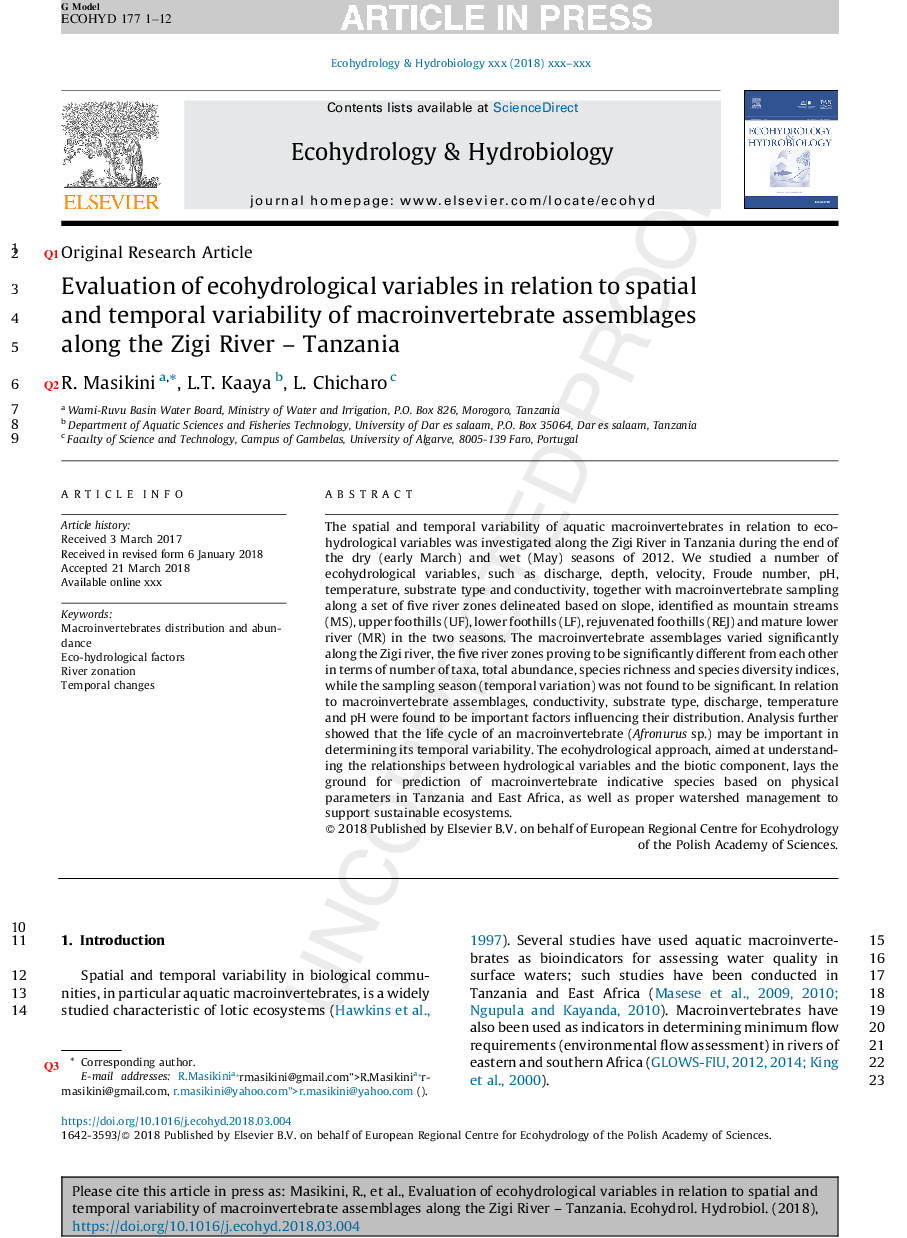| Article ID | Journal | Published Year | Pages | File Type |
|---|---|---|---|---|
| 8847650 | Ecohydrology & Hydrobiology | 2018 | 12 Pages |
Abstract
The spatial and temporal variability of aquatic macroinvertebrates in relation to eco-hydrological variables was investigated along the Zigi River in Tanzania during the end of the dry (early March) and wet (May) seasons of 2012. We studied a number of ecohydrological variables, such as discharge, depth, velocity, Froude number, pH, temperature, substrate type and conductivity, together with macroinvertebrate sampling along a set of five river zones delineated based on slope, identified as mountain streams (MS), upper foothills (UF), lower foothills (LF), rejuvenated foothills (REJ) and mature lower river (MR) in the two seasons. The macroinvertebrate assemblages varied significantly along the Zigi river, the five river zones proving to be significantly different from each other in terms of number of taxa, total abundance, species richness and species diversity indices, while the sampling season (temporal variation) was not found to be significant. In relation to macroinvertebrate assemblages, conductivity, substrate type, discharge, temperature and pH were found to be important factors influencing their distribution. Analysis further showed that the life cycle of an macroinvertebrate (Afronurus sp.) may be important in determining its temporal variability. The ecohydrological approach, aimed at understanding the relationships between hydrological variables and the biotic component, lays the ground for prediction of macroinvertebrate indicative species based on physical parameters in Tanzania and East Africa, as well as proper watershed management to support sustainable ecosystems.
Keywords
Related Topics
Life Sciences
Agricultural and Biological Sciences
Agricultural and Biological Sciences (General)
Authors
Rosemary Masikini, Lulu Tunu Kaaya, Luis Chicharo,
